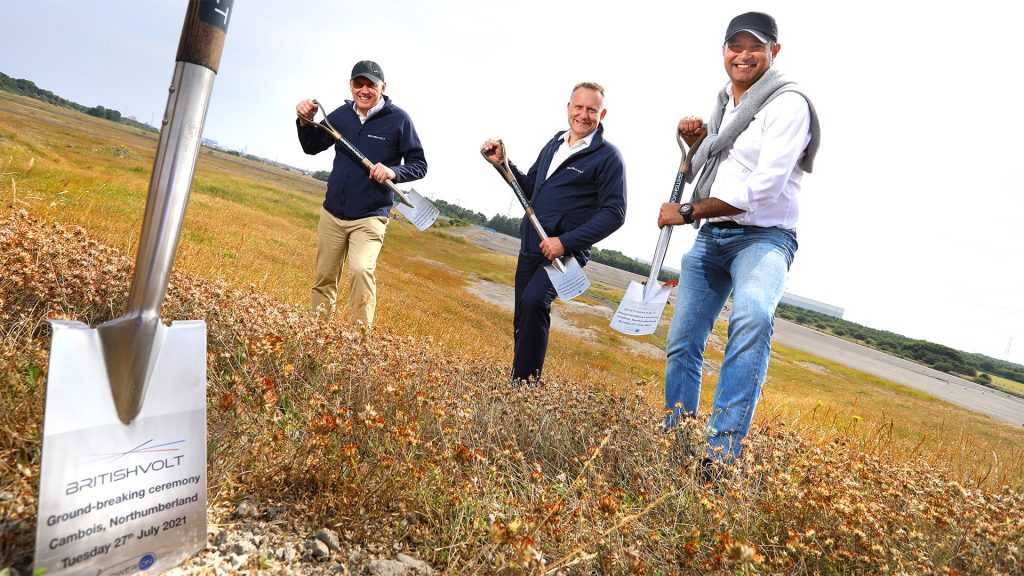With the potential to create up to 8,000 new jobs, the Britishvolt groundbreaking ceremony in Northumberland means that the timeline to the opening of a full-scale UK lithium-ion Gigaplant is now clear. It promises to be a real game changer for both the local economy and the overall EV supply chain in the UK. The project will be built up in three distinct phases, each resulting in 10GWh of capacity. The project was approved just three weeks ago.
Rules around the production and shipping of EVs in Europe will mean that countries with local battery production will be at a distinct advantage. Prior to the lockdown, the UK was registering 2.5m to 3m new vehicles every year. Britishvolt aims to provide a significant number of the batteries needed from this new plant.
It's fitting that the site chosen was the former Blyth Power Station coal stocking yard located in Cambois. Now it will be the place where 30GWh in battery capacity will be flowing annually from 2027 onward. That's enough for 300,000 EV battery packs a year.
According to Britishvolt, it will be the first Gigaplant in the UK – with a production capacity more than three times that of other recently announced schemes, all of which are only at early stages of design and planning.
It appears to provide a real-world implementation for GENESIS (Generating Energetic Novel cells and Systems Inspired by Software), which is a collaboration led by Britishvolt that aims to design and demonstrate a large format lithium-ion pouch cell. It will be optimised to deliver both high energy density and sustained fast charging, according to the automotive sector technical requirements and use-case specifications, provided by an automaker. The consortium will integrate both high energy cathode materials and novel separator technology from project partners Johnson Matthey and ENTEK Membranes. Prototype cells will be fabricated to refine and validate the modelling undertaken at Imperial College.
Council leader Glen Sanderson said: “We’re absolutely delighted. This is fantastic news – not just for the local area, but the wider county and the whole region. It’s the biggest investment in living memory.”
“Here in Northumberland we’re at the forefront of the offshore renewable energy industry and this is a massive boost. The decision by Britishvolt to choose Northumberland demonstrates just what this county has to offer in terms of its location, its facilities, an ambitious Council, and more importantly, its workforce,” he continued. “This will not only provide a huge economic upturn, it means 3,000 jobs onsite and thousands more in the supply chain.”
The plant looks like a win for UK drivers, as well as local authorities and central Government. The project seems closely aligned with the country’s ‘levelling up' agenda and will also help ambitious climate targets on the roadmap to a net zero society.
Having high-quality, locally produced EV batteries, available on demand, will help vehicle OEMs move their production lines away from fossil fuels.
Professor Pam Thomas, CEO of the Faraday Institution, commented: “This development demonstrates the rapid success of our organisation in identifying and pursuing battery research that offers the most potential to deliver commercial impact for the UK. Together the 17 projects announced by Innovate UK today will help create a thriving and profitable UK battery development and manufacturing industry.”
